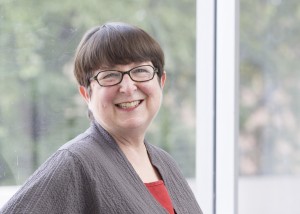
What single concept or skill do you feel is most important for your students to learn, and what is your approach to teaching it?
Interviewing tops my list, because being a great reporter is even more important than being a great writer. My goal is for students to develop reliable strategies for finding credible sources, both experts and regular folks. In addition to stressing preparation and post-interview verification, I also emphasize soft skills, such as making small talk at the beginning and recording your goodbyes (because you never know what the source will throw in at the last minute). My bottom line: Pay attention to sources as though you were falling in love with them; they’ll open right up without knowing why.
What specific skills-related experiences outside the classroom do you think are most important for students to have in their training?
Shoe-leather reporting still matters, so get out of the J-school and into the streets. In my fundamentals course for new grad students they interview one another and write short profiles during the first session. Next they do a “person on the street” story that requires interviewing five strangers. After that, the interviewing never stops. Learning to corner speakers at scientific conferences is part of this. Interrogating datasets is important but interviews and observations bring stories to life.
What have you learned in your own career that you most hope to convey to your students?
Follow your conscience, treat other people as you would like to be treated, and try not to do anything you will be ashamed of. Even people whose views or actions are anathema to you deserve a fair hearing. You will never regret being fair but you will be haunted by unfairness. Inevitably, we screw up. And when that happens we need to forgive ourselves, vow not to make that mistake again, and get back to work.
What textbooks and other reading do you use in your teaching?
I bombard students with recent stories relevant to what we’re studying, typically from The New York Times and The New Yorker but also from digital publications and state or regional news outlets. I draw from the Best American Science Writing books and from The New York Times Reader: Health & Medicine, although that feels dated in the wake of the Affordable Care Act. My favorite writing textbook is Jack Hart’s A Writer’s Coach. In the introductory health and medical journalism course I’ve used both News and Numbers (Cohn and Cope) and Know Your Chances (Woloshin, Schwartz, and Welch) to help students figure out what to ask researchers and how to translate statistics for general readers.
What resources do you wish were more readily available for students?
Adequately paid internships with news organizations. I teach at a state university in the South, and many of our top graduate students are not from wealthy families. They can’t afford to work in New York or Washington for free or for $10 an hour—as much as they want the experience.
What is a science story that you admire, and why?
Kim Tingley’s “The Suicide Detective,” from The New York Times Magazine (June 30, 2013). The notion of trying to predict [suicide attempts] is compelling because it turns out that by the time they are in graduate school, most young people have been personally touched by suicide. I love Tingley’s invocation of the Framingham Heart Study, reminding us that once we had no way of guessing who would die of a heart attack or stroke. This raises hope that someday we will be able to accurately assess suicide risk. That aside, the piece is beautifully written. For example: “Trying to study what people are thinking before they try to kill themselves is like trying to examine a shadow with a flashlight: The minute you spotlight it, it disappears.”
